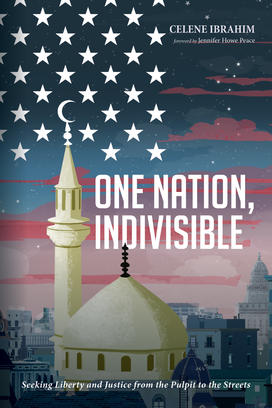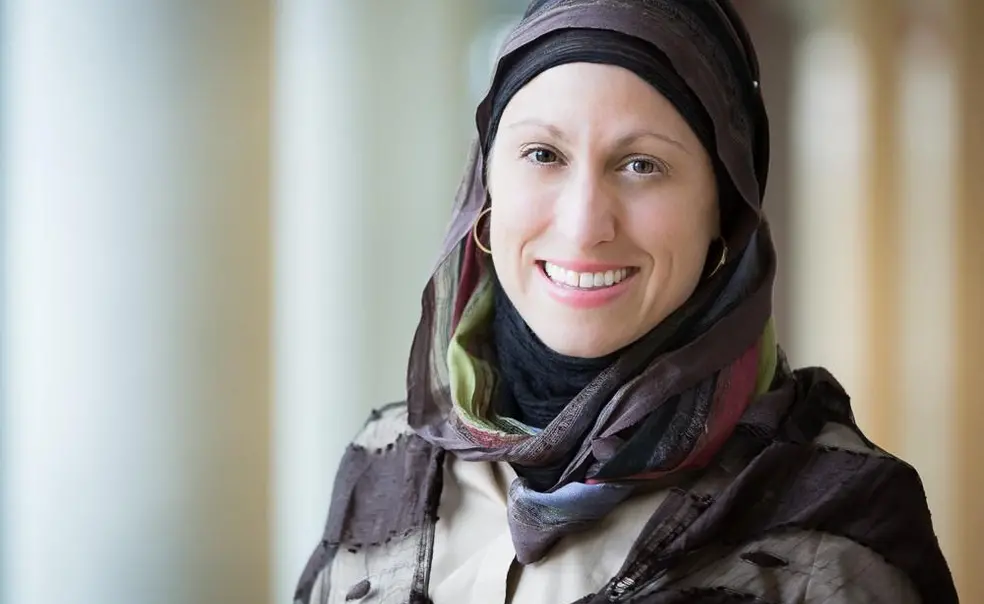Celene Ibrahim ’08’s Anthology Compiles Thoughts on Compassion, Justice
The book: In One Nation, Indivisible (Wipf & Stock), Celene Ibrahim ’08 compiles an anthology from more than 50 scholars, poets, artists, and religious chaplains that gives readers a glimpse into Islamic life. One by one, the vignettes describe moments of unconditional kindness, unexpected connections, and shared experiences across faiths.
As social activists modeling change in their own communities, “the volume’s contributors address themes such as anti-bigotry activism, radical hospitality, spiritually grounded efforts for socioeconomic justice, and more,” Ibrahim writes in the introduction. Later in the introduction, Ibrahim inspires her readers to live up to the unity espoused in the pledge of allegiance — one nation, indivisible — to learn about Islam through the lives of Muslim Americans, and to be hospitable, kind, and good as they advocate for social justice and fight discrimination.

Opening lines: Viewing glasses flew off the shelves as a complete solar eclipse swept darkness over much of the continental United States in August of 2017. Hardcore eclipse enthusiasts and casual observers alike stared into the darkened afternoon sky; many Muslims recited eclipse prayers together in mosques, homes, and workplaces. On my way home that day, my eye caught a Cambridge yard sign reading: “Eclipse Hate.” My gut wrenched as I was taken—from the sweet afternoon memories of people marveling together with strangers on sidewalks, passing eclipse glasses back and forth with generous enthusiasm—to the darkness of the white nationalist, Nazi sympathizers with their Tiki torches blazing, weapons menacing, swarming the streets and green spaces of Charlottesville, Virginia.
How can we, as individuals and communities, intervene in countering this destructive hate and fear that brews beneath the surface of our polity? How can we prevent it from again instigating violence and causing havoc? What can we learn from the peace activists and clergy of all colors and cloths who amassed a counter presence with prayer and song in a testament to the resilience of the human spirit? With the rise of isolationism, nativism, rampant fearmongering, the spread of American-made weapons around the globe, and even the proposals from those in positions of power for increased militarization of our schools and workplaces, what wisdom can be derived from core texts, teachings, and traditions? How do we understand our seemingly innate capacities for monstrosity? How can we overcome our more destructive collective impulses? What can help us bridge divides, counter hate, and stand up for those whose safety and security are most threatened? What interventions does the present moment necessitate?
Reviews: “This heartfelt collection of spiritual and artistic works, curated by a gifted scholar and educator, calls us to renew our commitment to religious pluralism. Read, reflect, and take action!”—Or Rose, Director, The Miller Center for Interreligious Learning & Leadership, Hebrew College












No responses yet